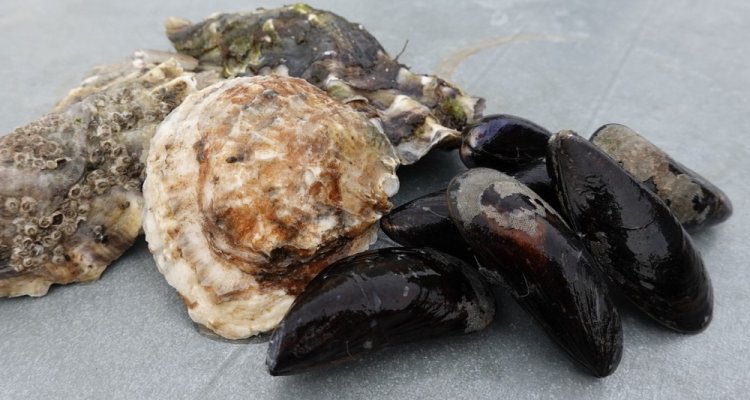
Project
Shellfish, sustainable and healthy
Shellfish fishery and farming takes place in the waters of the Oosterschelde, Grevelingenmeer and Wadden Sea. These are protected nature areas where many other parties also have an interest. Public support is needed to be able to use these areas. Having a social licence to produce is therefore essential for Dutch mussel and oyster farmers. This requires the growers to continuously pay active attention to sustainable and nature-inclusive business operations. This project makes the available scientific knowledge about sustainable, nature-inclusive shellfish production and shellfish as a healthy, safe and sustainable product available in an accessible manner for practical use by shellfish farmers, chain companies and fisheries schools. Nature and consumer organisations and governments also benefit from this knowledge. The various target groups receive up-to-date knowledge on various subjects in the form of master classes and mutual exchanges take place. These are supported by (interactive) popular documentation, which is available online and kept up-to-date.
Sustainable, nature-inclusive shellfish culture means that farming is economically profitable, the fishery and culture have no structural negative effects on nature and, where possible, are invigorating to nature, and are appreciated by society. In recent years, the shellfish fishery has invested a great deal in research into the development of robust farming systems that fit in with the natural values of the production areas. Improving the cultivation yield of shellfish seed, developing alternative sources for mussel seed and new cultivation methods for oysters are examples of this. Researchers have also gained a great deal of knowledge about the effects of closing areas for shellfish fishing in the Wadden Sea in order to promote nature development and biodiversity. Whereas up to now the dialogue on nature-inclusive shellfish cultivation has primarily been conducted within the triangle of sector-government-nature organisations, we are increasingly seeing the consumer becoming part of the conversation. The consumer demands food that is healthy and produced in a sustainable way for nature and the environment.
Research shows that shellfish score well in terms of CO2 footprint, circular production and health aspects. By focusing more on the sustainability and health aspects towards the consumer, the position of shellfish as a valued food can be improved. This will help to improve the earning models of growers and the chain, which are under pressure.
Publications
-
Mosselkweek en effecten op natuur
Wageningen: Wageningen Marine Research -
Eindrapportage Kennis op Maat project Schelpdieren, duurzaam en gezond
-
Factsheets en video’s helpen schelpdiervisserij bij duurzaam ondernemen
-
Mosselen zijn puur natuurlijke vleesvervangers en klimaatkampioenen
-
Consumentengedrag in relatie tot eiwittransitie
-
Hoe kun je de vis-en mosselverkoop bevorderen in supermarkten? : Aankoopmotieven van consumenten binnen meerdere Europese landen
-
Kennis op Maat "Schelpdieren, duurzaam en gezond' - sessie 4: Economie van de mossel- en oesterkweek
-
Kennis op Maat ' Schelpdieren, duurzaam en gezond': sessie 1: Gezondheidsaspecten schelpdieren
-
De milieubelasting van schelpdierproductie (infographic)
-
Schelpdieren en voedselveiligheid